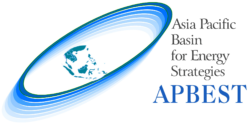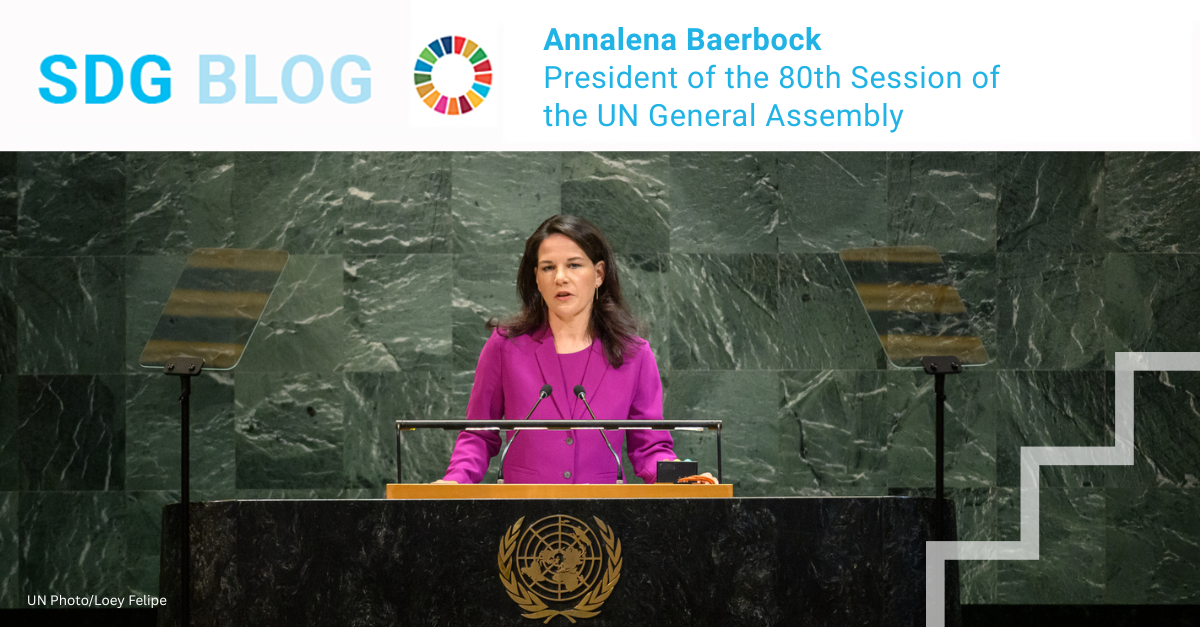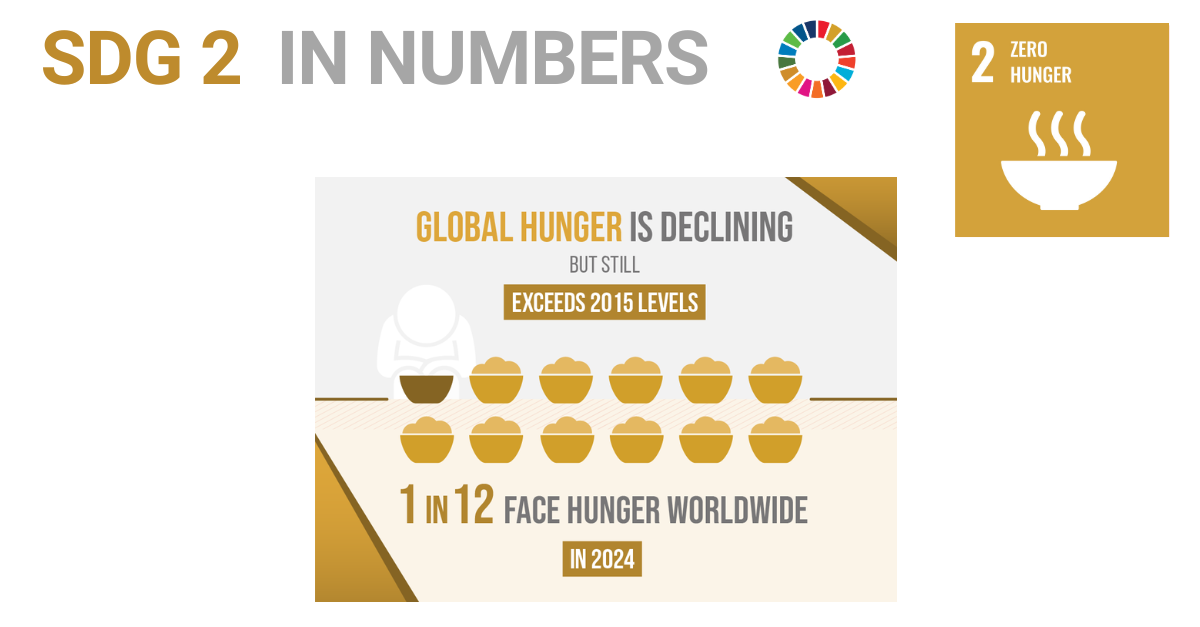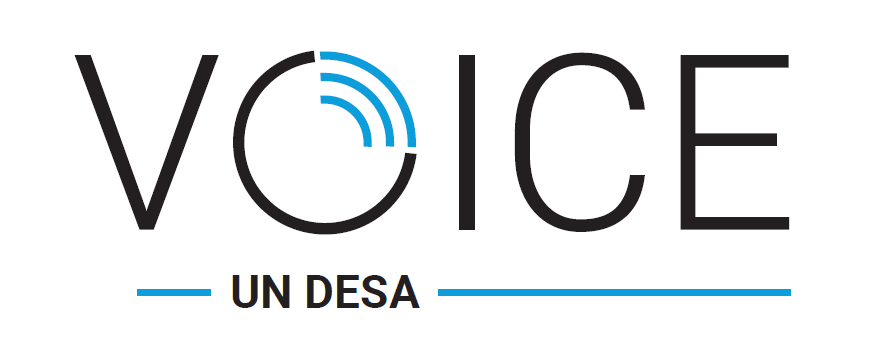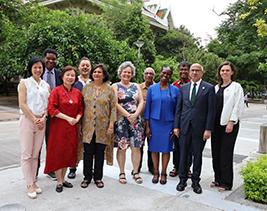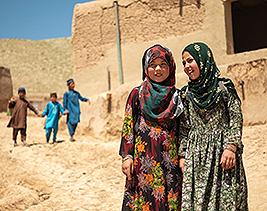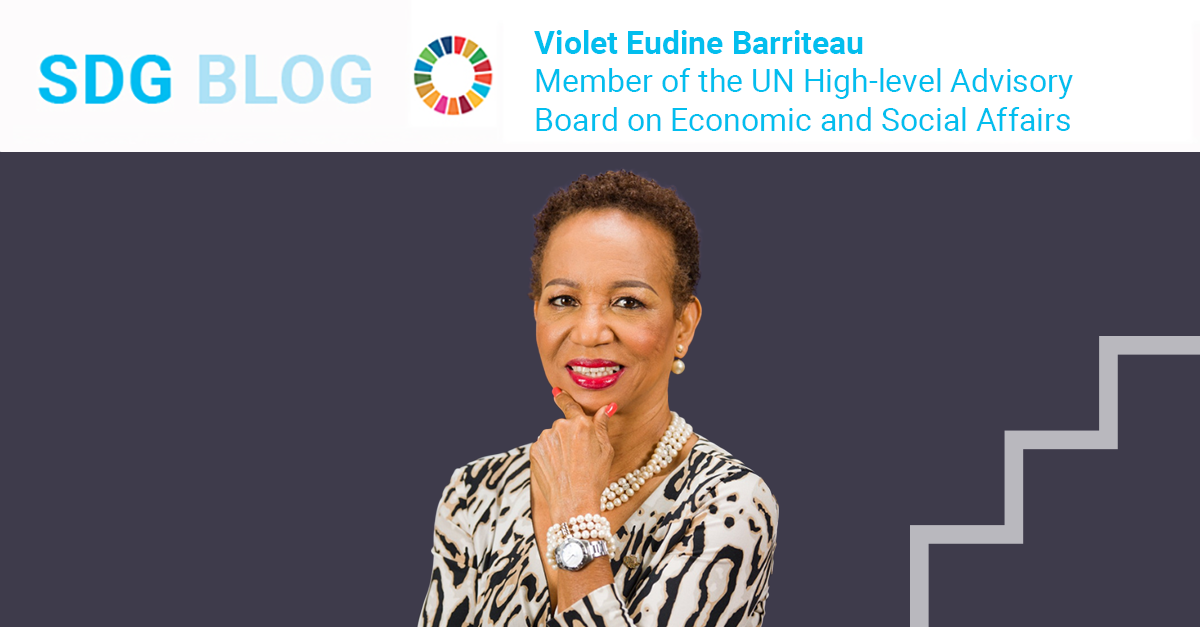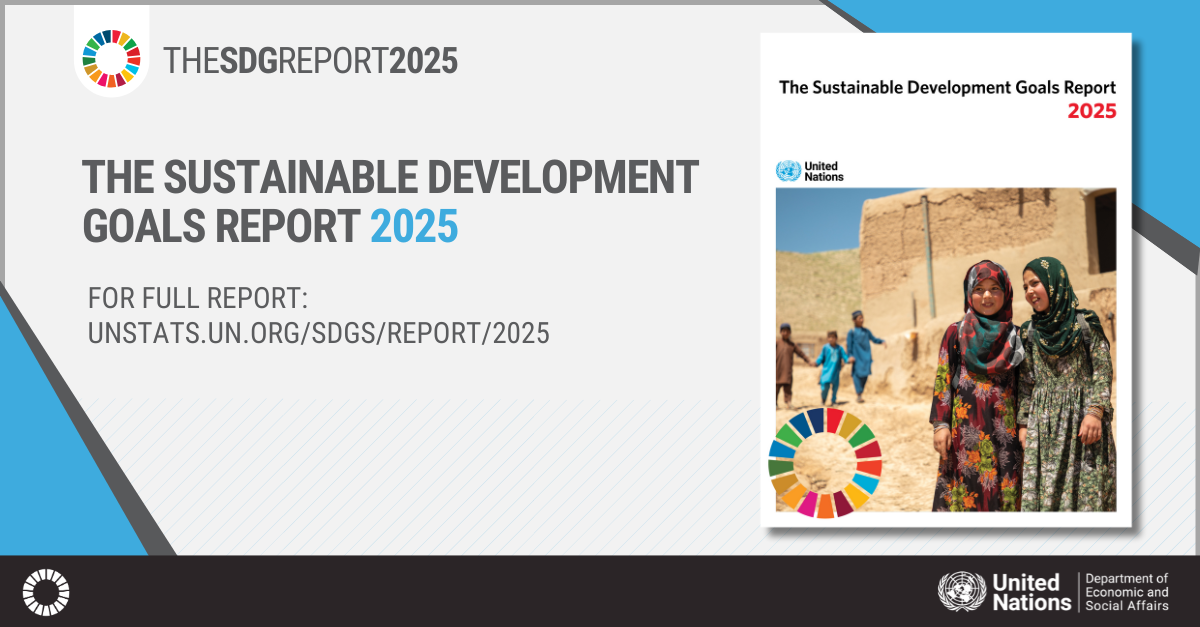What the data tell us about equality between women and men
Yet significant setbacks persist. If current trends continue, 351 million women and girls could still be living in extreme poverty by 2030. In 2024, nearly 64 million more women than men faced moderate or severe food insecurity, with anaemia among women aged 19-45 years projected to rise from 31 per cent today to 33 per cent in 2030. Women spend on average 2.5 times as many hours on unpaid care and domestic work as men. Only 30 per cent of managerial roles globally are held by women – a pace of change so slow that parity remains nearly a century away.
At the same time, targeted investment can be transformational. Closing the gender digital divide alone could add $1.5 trillion to global GDP by 2030. Accelerated action and interventions focused on care, education, the green economy, labour markets and social protection could unlock an estimated $342 trillion in cumulative economic returns by 2050.
The report’s main message is clear: gender equality is more than a moral imperative; it is an economic and social necessity. The 2030 deadline to meet the Sustainable Development Goals is fast approaching, and the next five years will determine whether the world seizes this opportunity – or allows hard-won gains to slip away.
Read the complete report, published by UN DESA and UN Women, here: The Gender Snapshot 2025.
Expert Voices
Sharing benefits of transformation broadly, leaving no one behind

Preparations are ramping up for the Second World Summit for Social Development taking place in Doha in less than two months. Expected to gather leaders from around the world, the Summit will seek ways to accelerate social progress and continue efforts to put people at the center of sustainable development. We spoke with UN DESA’s Neil Pierre about this milestone event and what he hopes it will achieve.
It’s been 30 years since the landmark World Summit on Social Development was convened in Copenhagen, Denmark. Reflecting on the past three decades, what progress have we made and what more do we need to do as inequalities have risen?
“Since the 1995 World Summit on Social Development, the world has seen major progress in poverty reduction. The share of people living in extreme poverty fell from 33 per cent in 1995 to 8.5 per cent in 2024, and over one billion people have escaped poverty. However, progress has slowed sharply since 2019, with many at risk of sliding back.
Inequalities remain a serious challenge. 65 per cent of the world’s population lives in countries where income inequality has increased since the 1990s. Wealth is highly concentrated, with the richest 10 per cent holding 76 per cent of global wealth, while the poorest half owns only two per cent. Labour income shares have declined, and gaps in education and health outcomes persist. Children in the richest households are far more likely to avoid stunting and attend school compared to those in the poorest households, especially in sub-Saharan Africa.
Social protection remains uneven: nearly half of the world’s people lack coverage, and in low-income countries, fewer than 10 per cent have access. High-income countries are close to universal coverage, but developing nations lag far behind, leaving the most vulnerable exposed to poverty and climate shocks.
In short, poverty has declined, but progress is fragile. Inequalities, gaps in access to education and health, and weak social protection systems show how much remains to be done.”
What outcomes and commitments can we expect from the Second World Summit for Social Development in Doha? How will this Summit move beyond the 1995 Copenhagen commitments to address today’s challenges of digital transformation, climate change and rising inequalities?
“The Second World Summit in Doha will deliver a Political Declaration reaffirming global commitments to social development. Member States recognize the urgency of tackling poverty, unemployment, and exclusion, while addressing structural causes and consequences in line with human rights.
The Declaration builds on the Copenhagen commitments by reaffirming the three pillars of social development: poverty eradication, decent work, and social integration. It emphasizes their interdependence and the need for enabling environments that allow them to be pursued together. It links social development directly with peace, security, and human rights, underscoring that one cannot exist without the others.
The Declaration also reaffirms the 2030 Agenda and the Sustainable Development Goals, with a promise to “leave no one behind.” It acknowledges today’s realities, including climate change, digital transformation, and widening inequalities, and calls for holistic approaches to eradicate both extreme and multidimensional poverty. It highlights resilience, inclusion, and combating the feminization of poverty.
Finally, it commits to inclusive, sustainable economic growth, full employment, decent work for all, and cohesive societies grounded in solidarity, equality, and human dignity.”
How can we harness new tools—such as digital participation, community-led innovations, and inclusive governance platforms—to make multilateralism truly people-centered?
“The Summit will highlight how digital participation, innovation, and inclusive governance can help achieve people-centered multilateralism. Building on the Pact for the Future, it will stress the role of stakeholders in harnessing transformative technologies to advance social development.
Investment will be a key focus, including international cooperation and South-South collaboration, to support developing countries in poverty eradication and social inclusion. Discussions will call for equitable access to markets, investments, and technologies, while boosting productivity, diversification, and digital innovation.
Youth employment and skills development will be central. The Summit will promote policies that expand access to education, vocational training, lifelong learning, digital literacy, entrepreneurship, and universal social protection. This also includes addressing informal work, ensuring fair wages, safe conditions, and full respect for workers’ rights.
A major priority will be closing digital divides within and between countries. The Summit will promote safe and affordable access to digital infrastructure, public goods, and emerging technologies, including artificial intelligence. At the same time, it will stress responsible governance to prevent harm and risks.
By linking technology, governance, and social inclusion, the Summit aims to ensure that the benefits of transformation are shared broadly, leaving no one behind.”
For more information: Second World Summit for Social Development.
Things You Need To Know
7 ways UN DESA boosts change through multilateral action

With just five years remaining to achieve the 2030 Agenda, the world stands at a crossroads. The past year has brought unprecedented challenges—from converging crises, rising geopolitical tensions to persistent inequalities that have tested our collective resolve and threatened progress on the Sustainable Development Goals (SDGs). Yet, this period has also sparked bold innovation, renewed partnerships, and fresh momentum for multilateral action.
UN DESA’s annual Highlights 2025 report captures seven transformative ways the Department has supported Member States and partners to drive SDG progress during the 79th session of the General Assembly.
1. Accelerating action for the SDGs
Amidst global uncertainty, UN DESA has served as the intergovernmental nexus of the UN development pillar. The Department supported Member States through pivotal moments, including the adoption of the Pact for the Future at the Summit of the Future, revitalizing global cooperation. UN DESA also supported the High-level Political Forum on Sustainable Development (HLPF), advancing SDG localization, science and technology innovation, and multistakeholder partnerships.
2. Reducing poverty and inequality
UN DESA has called for a bold new global policy consensus to leave no one behind. As reflected in the World Social Report 2025, the Department outlined pathways to universal social protection, decent work, and inclusive institutions. Its initiatives have empowered marginalized communities, advanced disability inclusion, and promoted economic models designed to leave no one behind.
3. Ensuring sustainable financing
Addressing the heart of the sustainable development crisis, UN DESA played a pivotal role in reshaping the global financing landscape. The historic Fourth International Conference on Financing for Development in Sevilla, Spain brought together world leaders to adopt the landmark Sevilla Commitment. Breakthrough achievements in international tax cooperation and tailored support for Small Island Developing States (SIDS) have opened new avenues for sustainable investment.
4. Making data count
Robust, high-quality data remains the foundation of effective policymaking. UN DESA’s critical role in setting global standards, launching the 2030 World Population and Housing Census Programme, and mainstreaming gender perspectives in official statistics has enabled countries to monitor and accelerate SDG progress with evidence-based solutions.
5. Strengthening national institutions and accountability
UN DESA has strengthened governance by supporting effective, accountable, and inclusive public institutions. This year, the Department convened global leaders and innovators at the 2025 United Nations Public Service Forum, launched a cutting-edge E-Government Toolkit to modernize public service delivery, and energized digital cooperation through the Internet Governance Forum, which broke participation records and sparked vibrant global dialogue.
6. Ending the war on nature
UN DESA’s integrated approach to the triple planetary crisis has mobilized transformative action. From the “Our ocean, our future” declaration at the UN Ocean Conference to $1.4 trillion in commitments under the Energy Compacts, and leadership in climate and forest conservation, the Department is advancing holistic solutions for people and planet.
7. Framing the future of development
Strategic foresight and anticipatory action are at the heart of UN DESA’s work to navigate global uncertainty. Through flagship reports, innovative AI-powered tools, macroeconomic modeling, and youth engagement, the Department is equipping Member States and the UN system to meet both present and future challenges.
Read more about these achievements in the UN DESA Annual Highlights Report available here.
More from UN DESA
Read more here: https://desapublications.un.org/un-desa-voice/october-2025
